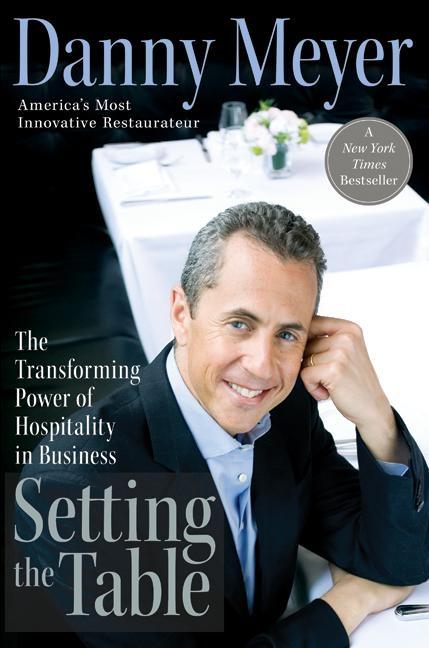The book Setting the Table: The Transforming Power of Hospitality of in Business is one part story of how the author, Danny Meyer, created a successful restaurant business in New York and one part explanation of his business strategy of “enlightened hospitality”. His business is probably best known nationally for Shake Shack, which the book only touches on the early years of, as the book was released in 2006. The restaurants that receive more focus are his earlier fine dining establishments, Union Square Cafe, Grammercy Tavern, Eleven Madison Park, Tabla, Blue Smoke, as well as several restaurants in the Museum of Mondern Art.
I found the first part of that rather interesting, though it is a bit different from how the book is portrayed. One of the blurbs on the back of the book starts out “In 1985, a twenty-seven-year-old from St. Lous came to New York with the absolutely naive and Pollyanish idea that you could succeed in New York by being nice.” In reality, he had come to New York years before that and had gotten a job in New York City through one of his wealthy grandfathers.
The second part of that I found less interesting. While some of the business advice seems useful, not just for business, but also for life, other parts seem like they are meant to sound profound, but lack real substance. This talk of “fire” seems like a good encapsulation of that:
Most managerial problems stem from an irresponsible, inappropriate, or inconsistent use of fire. It takes time to learn, but until managers understand all the different ways they can — and must — use their fire, depending on the circumstances, they cannot reach their own greatest potential or help others reach theirs. Managers can use their fire as a torch: a light for guidance and teaching, and for leading and showing the way. They can use their fire to offer warmth and empathy, to make employees feel safe. A manager’s fire can be used as a campfire, to form collegial bonds with employees, and to inspire others and help them grow. A fire can also be a bonfire to rally the troops, to foster team folklore, to get the group motivated, and to bring people together in a unified pursuit of a common goal.
I also don’t know if some of the focus of that part is applicable if you are not running a business focused on a high end clientele, as the level of service and focus on the customer might not fit with a business that is targeted toward that type of clientele.
Bottomline
If you are interested in a book about the development of fine dining restaurants, then the book is worth a read. If you are looking for a book on catering a business to higher end clientele, this might also be a good option as well.


